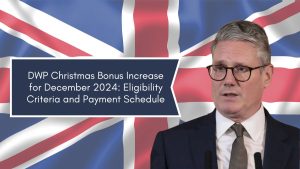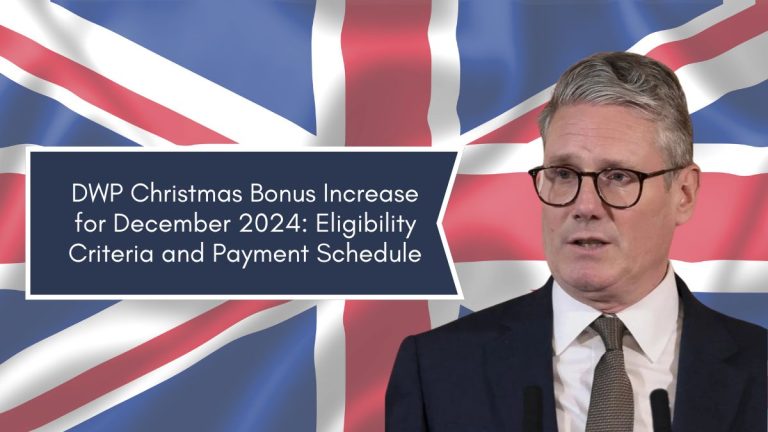In 2024, significant modifications to the Personal Independence Payment (PIP) in the UK are set to provide more financial assistance to those with disabilities or long-term health conditions. These changes aim to address rising living costs and help recipients better manage daily challenges.
This guide explains the recent updates to the PIP payment structure, eligibility requirements, and potential reforms that could affect existing and future claimants.
Key Information at a Glance
| Key Details | Information |
|---|---|
| PIP Payment Increase | 6.7% increase in April 2024 to align with inflation |
| Maximum Payment | Up to £9,500 per year for claimants receiving both components |
| Eligibility Criteria | Must be 16+ years old, under State Pension age, and experiencing daily living and mobility difficulties for 9+ months |
| Application Process | Involves a thorough assessment of condition impact on daily life |
What is Personal Independence Payment (PIP)?
The Personal Independence Payment (PIP) is a benefit provided to individuals in the UK who face challenges due to a disability or long-term health conditions. Unlike means-tested benefits, PIP eligibility is determined by the severity of your condition and how it impacts daily living and mobility, not by income or savings.
PIP is divided into two components:
- Daily Living Component: Supports individuals with personal care, cooking, and daily tasks.
- Mobility Component: Helps with travel and movement-related expenses.
Each component has a standard rate and an enhanced rate, determined by how much assistance is needed.
2024 PIP Payment Rates Update
In response to inflation, PIP rates were raised by 6.7% in April 2024. Below are the updated weekly rates for the Daily Living and Mobility Components:
| Component | Standard Rate | Enhanced Rate |
|---|---|---|
| Daily Living | £72.65/week | £108.55/week |
| Mobility | £28.70/week | £75.75/week |
This increase means claimants who qualify for the enhanced rates for both components can now receive up to £9,500 per year.
PIP Eligibility Criteria for 2024
The eligibility criteria for PIP are as follows:
- Age: Applicants must be 16 years old or older and under the State Pension age.
- Residency: You must live in England, Scotland, or Wales to qualify.
- Condition Duration: You must have experienced challenges with daily living or mobility for at least 9 months, and these difficulties must be expected to continue for at least another 9 months.
- Impact on Daily Life: Eligibility focuses on how your condition affects your ability to carry out everyday tasks. For instance, someone with arthritis who struggles with activities like dressing or cooking might qualify for the Daily Living Component.
Proposed Reforms to PIP in 2024
The government is considering a series of reforms to PIP to improve its efficiency and manage long-term costs. Proposed changes include:
- Vouchers for Services: Instead of direct payments, claimants may receive vouchers for specific needs like home adaptations or mobility aids.
- Reimbursement System: Some claimants might need to submit receipts for eligible expenses for reimbursement.
- Revised Assessment Process: New questions may be introduced, especially for individuals with mental health conditions, making the process more tailored to their needs.
- Diagnosis Requirement: Claimants may be required to provide a formal diagnosis to qualify for PIP.
- Terminal Condition Exemption: People with terminal conditions could be exempt from regular assessments, easing the process for them.
These changes are still under consultation and not yet in effect. Updates will follow as the government finalizes these reforms.
How to Apply for PIP Payments in 2024
To apply for PIP, follow these steps:
- Initiate the Claim: Call the PIP claim line at 0800 917 2222. You’ll need to provide personal details, including your National Insurance number and bank account information.
- Complete the Form: After initiating the claim, you will receive a ‘How Your Disability Affects You’ form. This is where you describe how your condition impacts your daily life. Be as thorough as possible.
- Prepare for the Assessment: You’ll likely attend an assessment with a health professional, who will evaluate your ability to perform daily tasks and move independently. Be ready to provide examples and answer questions about your condition.
- Receive Your Decision: After the assessment, the Department for Work and Pensions (DWP) typically takes 8-12 weeks to reach a decision. You will be notified of your eligibility and the payment amount.
- Appeal if Necessary: If you disagree with the decision, you can request a Mandatory Reconsideration or submit an official appeal.
Tips for a Successful PIP Application
- Be Detailed: Clearly explain how your condition affects each aspect of your daily life.
- Provide Documentation: Include supporting evidence such as doctor’s letters, medical records, or therapist reports to back up your claim.
- Prepare for the Assessment: Think of specific examples of tasks you find difficult, as these will be key discussion points during the assessment.
- Seek Assistance: Reach out to charities or support organizations, such as Scope or Citizens Advice, for help with the application process.
Common Pitfalls and How to Avoid Them
- Missing Documentation: Make sure you have all necessary supporting documents, such as medical records and therapist letters.
- Underestimating Impact: Be honest about how your condition affects you daily. Don’t minimize the challenges you face.
- Incomplete Forms: Double-check your application to ensure all sections are filled out clearly and completely.
FAQs
Q1. Can I work while receiving PIP?
Yes, your employment status or income does not affect your eligibility for PIP.
Q2. Does receiving other benefits impact my PIP?
No, PIP is independent of other benefits, but receiving PIP may help you qualify for additional support such as Carer’s Allowance.
Q3. Do mental health conditions qualify for PIP?
Yes, PIP covers both physical and mental health conditions, and eligibility depends on the impact on your daily life.
Q4. What if my condition changes?
You can request a review if your condition improves or worsens, which could change your PIP payments.
Q5. How long does it take to get a PIP decision?
On average, the decision will be made within 8-12 weeks after your assessment.







